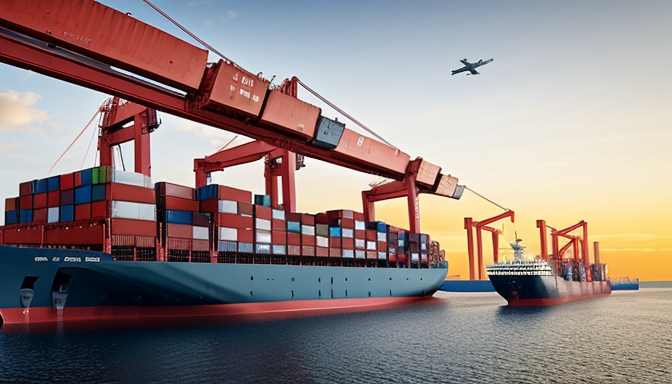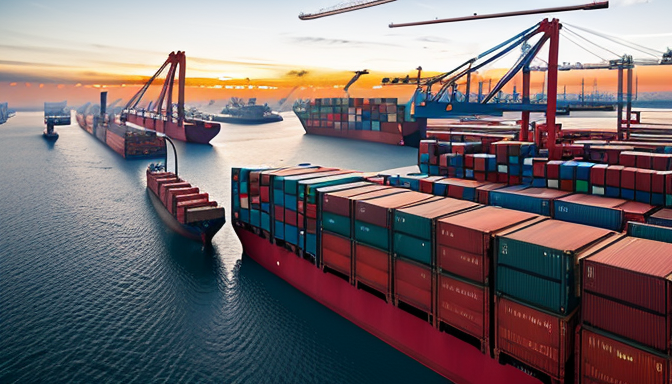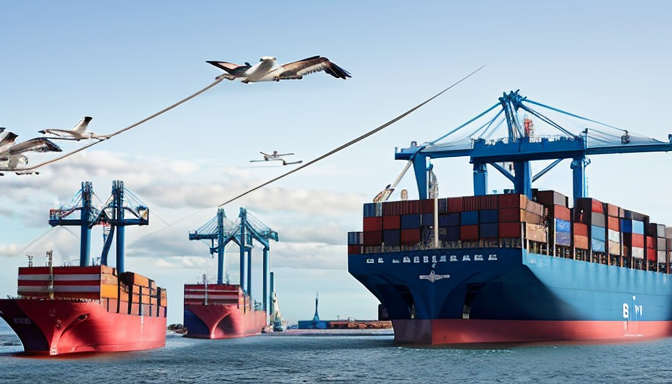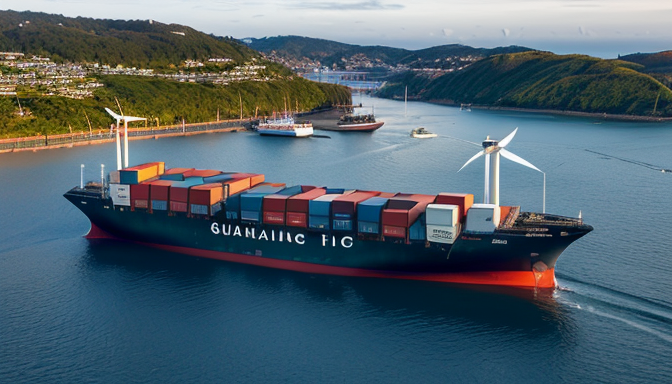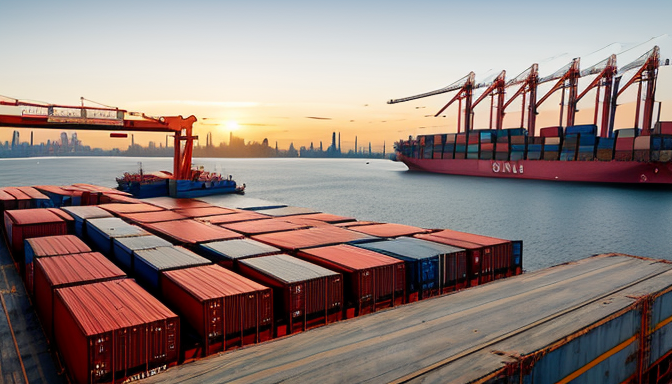The Impact of Global Events on Maritime Shipping Trends
In today’s interconnected world, global events act as powerful catalysts, reshaping the landscape of maritime shipping trends. Have you ever wondered how a political upheaval in one country can ripple across the oceans, affecting shipping routes thousands of miles away? It’s fascinating, isn’t it? From economic booms to environmental crises, every event sends shockwaves through the shipping industry, influencing everything from trade volumes to container systems and port technology.
For instance, during economic downturns, shipping rates can plummet as demand for goods decreases, leading to a surplus of vessels idling in ports. Conversely, a surge in global trade can lead to congestion at major ports, highlighting the need for advanced port technology to streamline operations. The introduction of smart ports equipped with IoT technology is revolutionizing how we manage shipping logistics, ensuring that goods move swiftly and efficiently.
Moreover, environmental factors have become increasingly significant, with the shipping industry facing pressure to adopt greener practices. The push for sustainability isn’t just a trend—it’s a necessity. As regulations tighten and public awareness grows, companies are investing in cleaner fuel alternatives and innovative container systems that reduce carbon footprints. The future of maritime shipping will depend heavily on how well the industry adapts to these global challenges.
In conclusion, understanding the intricate relationship between global events and maritime shipping trends is crucial for stakeholders. As we navigate through these turbulent waters, staying informed and adaptable will be key to thriving in this ever-evolving landscape.
The Role of Economic Factors
When we talk about maritime shipping, we can’t ignore the economic factors that play a pivotal role in shaping the industry. Imagine the global economy as a vast ocean, with shipping containers as the vessels navigating through it. Economic fluctuations, like tides, can either lift these vessels or leave them stranded. For example, during times of economic growth, trade volumes soar, leading to an increased demand for shipping services. This surge often results in higher shipping rates and can even push the limits of port capacities.
Conversely, during economic downturns, the shipping industry feels the pinch. Lower trade volumes mean fewer goods are transported, which can lead to a significant drop in shipping rates. It’s like a rollercoaster ride; the ups are exhilarating, but the downs can be quite daunting. Stakeholders in the maritime sector, from shipping companies to port operators, must stay vigilant and adapt to these ever-changing market conditions. They need to be aware of global economic indicators, such as GDP growth rates and consumer spending trends, which can provide valuable insights into future shipping demands.
Furthermore, advancements in container systems and port technology are essential in responding to these economic shifts. Modern ports are increasingly adopting automation and digital solutions to enhance efficiency and reduce operational costs. This not only helps in managing the fluctuating demands but also positions them favorably in a competitive market. In essence, understanding the economic landscape is crucial for anyone involved in maritime shipping, as it directly influences their strategies and operations.
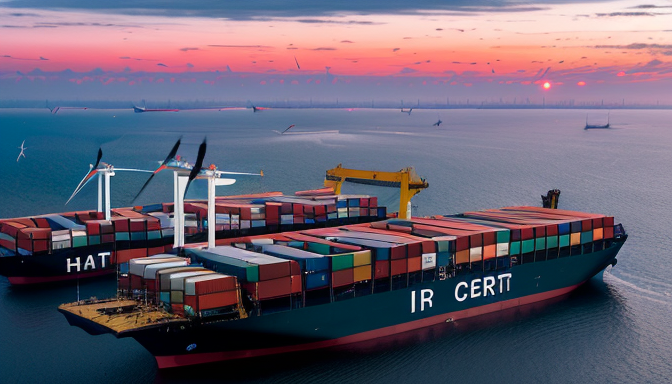
Environmental Considerations in Shipping
As the world becomes increasingly aware of the environmental challenges we face, the maritime shipping industry is stepping up to the plate. It’s no longer just about transporting goods; it’s about doing so in a way that protects our planet. With rising concerns over climate change, the industry is witnessing a seismic shift in practices and regulations. Have you ever thought about how much fuel a massive container ship consumes? It’s staggering! This has led to a push for more sustainable shipping solutions, including the adoption of cleaner fuels and energy-efficient technologies.
Shipping companies are now investing heavily in green technologies and innovations. For instance, many are exploring the use of liquefied natural gas (LNG) as a cleaner alternative to traditional fuels. Additionally, the implementation of wind-assisted propulsion systems is gaining traction, allowing ships to harness natural forces to reduce fuel consumption. These advancements not only help in lowering emissions but also contribute to cost savings over time.
Moreover, regulatory bodies are tightening the reins on emissions. The International Maritime Organization (IMO) has set ambitious targets to reduce greenhouse gas emissions by at least 50% by 2050. This means shipping companies must adapt quickly or risk falling behind. The future of maritime shipping lies in embracing these environmental considerations, and those who do will not only comply with regulations but will also gain a competitive edge in a market that increasingly values sustainability.
| Environmental Initiative | Description |
|---|---|
| Use of LNG | Adopting liquefied natural gas as a cleaner fuel alternative. |
| Wind-Assisted Propulsion | Utilizing wind power to reduce fuel consumption. |
| Emission Regulations | Compliance with IMO’s targets for reducing greenhouse gas emissions. |
Frequently Asked Questions
- How do global economic factors influence maritime shipping trends?
Global economic factors play a pivotal role in shaping maritime shipping trends. When economies thrive, trade volumes surge, leading to increased shipping rates and higher operational costs. Conversely, economic downturns can result in decreased demand for shipping services, prompting stakeholders to adapt their strategies to navigate these fluctuations.
- What environmental considerations are impacting the shipping industry?
Environmental considerations are increasingly critical in the shipping industry. Stricter regulations and a heightened focus on sustainability are driving companies to adopt greener practices. This includes investing in cleaner technologies and reducing emissions, which not only helps combat climate change but can also enhance a company’s reputation in a market that values environmental responsibility.
- How can shipping companies prepare for future global events?
Shipping companies can prepare for future global events by staying informed about market trends and potential disruptions. Implementing flexible operational strategies, investing in technology, and fostering partnerships can help companies quickly adapt to changes, ensuring they remain competitive and resilient in an ever-evolving global landscape.

